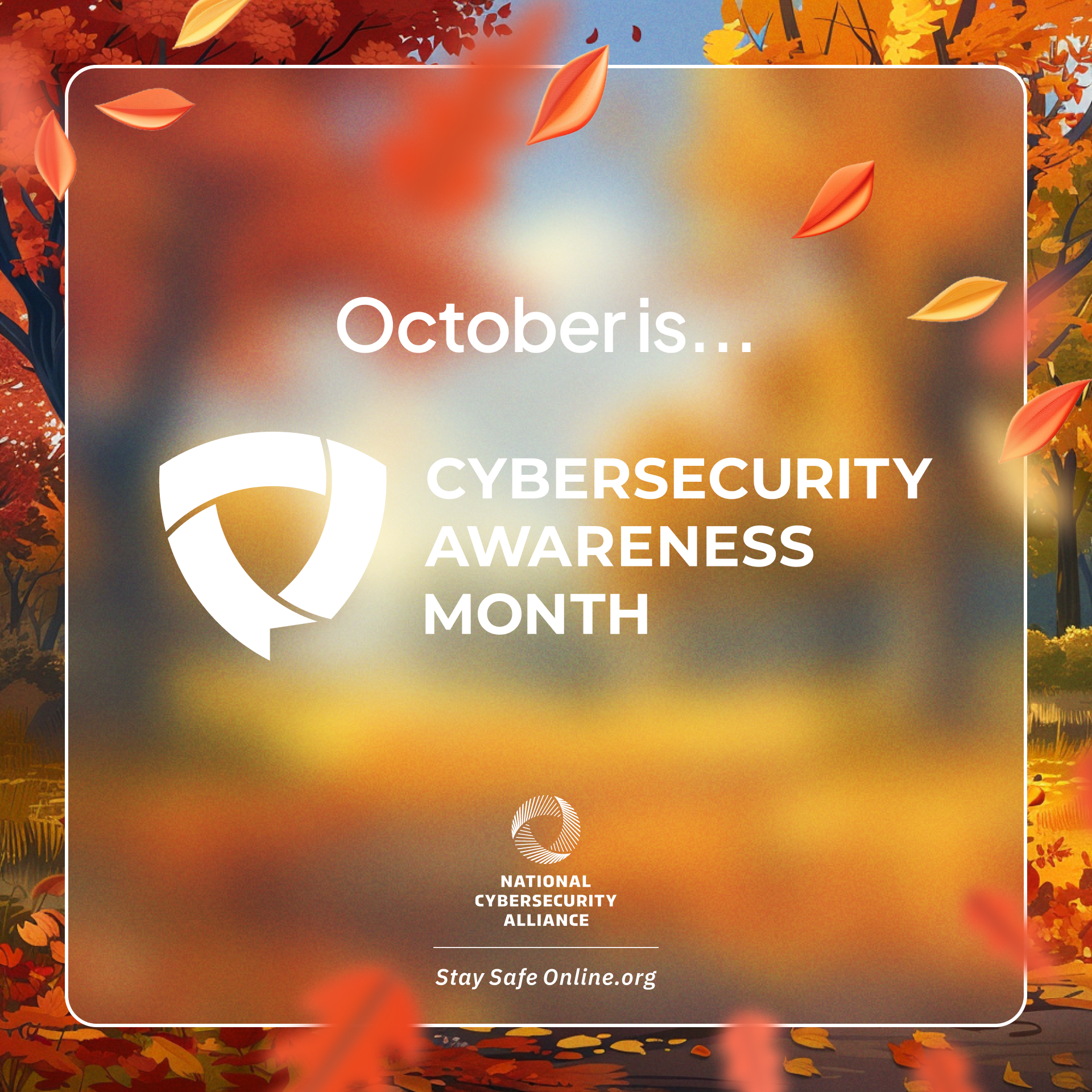'Falling' into National Cybersecurity Awareness Month 2024

Faculty members are tired. Students are tired. Staff and administrators are tired. Those charged with trying to pay the bills are simply exhausted.
The education industry is bone weary from the almost daily news about yet another cybersecurity attack, stealing even more of the public’s private data. Weary of seeing their lives being increasingly complicated by constantly changing (and sadly not always effective) attempts at protecting their sensitive and confidential data. Passwords and PINs and facial recognitions and bouncing to text messages with that code to type back in before it expires.
It is really all too much.
The latest saga in this warped docuseries that never seems to have a final episode was the National Public Data (NPD) breach of background check data in which more than 2.5 billion records were stolen containing personally identifiable information, including social security numbers and even names of relatives. The fact NPD is sometimes used as a fraud prevention service is a microcosm of the irony surrounding many of these cases.
None of this is bound to stop anytime soon, but maybe a little well-spent time and focus on cybersecurity once a year could reduce that ominous risk.
Enter National Cybersecurity Awareness Month (NCSAM), which celebrates its 20th Anniversary in October. While certainly not as appealing on the surface, at least, to other celebrations that also claim October like National Roller Skating Month and National Positive Attitude Month, NCSAM takes no back seat when it comes to importance.
Sure, vigilance against the evils cybersecurity attacks is a 24 X 7 X 365 endeavor. But embracing 31 of those days to educate ourselves and take action – hopefully concluding with a great trick-or-treat ending – can make the following year less of a personal concern.
A great place to get started is with the non-profit National Cybersecurity Alliance (staysafeonline.org). The site features a treasure trove of practical, easy to digest quick pointers that can help make safe computing practices much easier to adopt.
Just one great resource is a webpage featuring links to the privacy policies for dozens of the most popular and important websites when it comes to personal information. Clearly arranged into categories such as mobile banking, health applications, social media and even dating sites, the Alliance can lead you to answers in a hurry.
The story gets better for those of us in education. NCSAM includes a section dedicated to free and low-cost resources targeted to teachers and students in the K-6, 6-12 and higher education sectors. Among the resources are tips for how best to encourage children to care about cybersecurity. Simple, practical advice all contained in what NCSAM estimates is a four-minute read.
NCSAM obviously makes its most positive impact when the institution itself gets on board. An institution’s participation by using October to recognize the serious impact cybersecurity attacks have on our lives, that of our institutions and society, in general, can make a significant positive impact. A great first step is for the institution to become a Cybersecurity Awareness Month Champion, which is a simple and free designation to – in the words of the Alliance - “represent those dedicated to promoting a safer, more secure and more trusted internet.”More than 100 educational institutions – ranging from K-12, higher education – took the pledge in 2023.
Since NCSAM was cofounded in 2004 by The Alliance along with the U.S. Department of Homeland Security in 2004, it is fitting the U.S. Cybersecurity & Infrastructure Security Agency (CISA) also offers a great free resource via its Secure Our World site (www.cisa.gov/secure-our-world) site.
Secure Our World is a terrific resource for education, as it includes resources like posters that can be placed in halls, classrooms, labs and libraries. There are more than a dozen two-page ‘tip sheets’ with colorful, easy-to-read infographics that can help our institution’s community at a glance. With subjects like passwords and multi-factor authentication (MFA), the focus is on the end user. Throw in a free cybersecurity bingo card for youth and another for organizations, and even the most resource-constrained institution can benefit.
The reality is no 31 days will stop events like the NPD breach. It will not stop the gloomy report from Malewarebytes (Based on ThreatDown research) that education was the victim of 265 known attacks in 2023 after the 129 just one year earlier.
But the silver lining in the cybersecurity space is that any improvement makes a positive difference. One fewer successful attack can make a tremendous impact. We can all hope for a year when cybersecurity professionals in education can replace thoughts of NCSAM with National Positive Attitude Month.
Bill Balint is contracted as the Advisory CIO for Education at Trivigil via Haven Hill Services LLC



